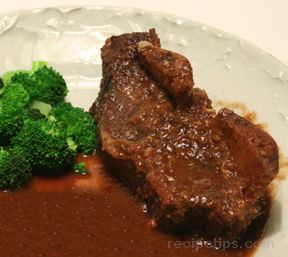How to increase melanin in your hair to prevent premature greying
It is normal to notice a change in your hair colour or premature greying as you age. It could be due to decreased production of melanin in your hair, the pigment responsible for your hair colour. If you want your locks to look vibrant and lustrous forever, maintaining melanin levels is crucial. Do you know … Continue reading "How to increase melanin in your hair to prevent premature greying"

You may be surprised to learn that the type and quantity of melanin in your hair affect its color. For example, the most prevalent form of melanin, eumelanin, is what gives your black and brown hair their color. Your redder colors, however, are caused by pheomelanin, a different form of melanin. Additionally, melanin serves as a natural shield to protect your hair from the sun's damaging ultraviolet (UV) rays. It works by taking in and distributing UV rays, preventing the rays from damaging the inside structure of your hair. Now that you are aware of the significance of melanin, let's examine some strategies for boosting our hair's production of this pigment.
How to increase melanin in your hair to prevent premature greying.
Try out these ways to increase melanin in your hair
The complicated process of increasing melanin in hair is impacted by hormones, heredity, and general health. The pigment called melanin is what gives our skin, hair, and eyes their color. There are some general strategies that people can think about to maintain or enhance the melanin content in their hair, even though there are no guaranteed ways to significantly increase melanin in hair.
While these strategies can help maintain the health of your hair and potentially support melanin production, it is essential to recognize that genetics largely determine the amount of melanin in your hair. As we age, our hair naturally tends to lose melanin, leading to greying. In such cases, embracing the natural ageing process may be the best course of action.
1. Balanced diet and nutrition
According to the expert, "Since certain vitamins and minerals are involved in the production of melanin, maintaining adequate nutrition is crucial for hair health." It can be advantageous to eat a balanced diet high in foods high in vitamin A, B vitamins (particularly biotin), and minerals like copper and zinc.
2. Safeguarding against UV rays
Keeping your hair protected from UV rays is another crucial component in keeping melanin levels stable. Long-term sun exposure can cause melanin loss and damage to hair. Using hair products with UV protection or wearing a hat can help shield your hair from harmful UV rays.
3. Relaxation techniques like scalp massages
By using the right techniques and increasing blood circulation to hair follicles, scalp massages can help increase the production of melanin. According to the expert, practicing stress-reduction methods like yoga, meditation, and physical activity can be helpful.
4. Lifestyle modification
Lifestyle modifications that can improve overall hair health are encouraged, such as stress reduction and smoking cessation.
5. New techniques like PRP therapy
According to the expert, "Non-surgical treatments like Platelet-rich Plasma (PRP) therapy may be investigated to stimulate melanin production and possibly hair growth."
6. Use natural hair products
It's important to stay away from chemicals and harsh hair treatments. Overuse of chemical treatments such as straighteners, hair dyes, and other treatments can harm hair and possibly interfere with the production of melanin. Choose natural, gentle hair care products and avoid using too harsh treatments on your hair.
7. Managing stress
Moreover, stress management is crucial. Your hair can suffer as a result of ongoing stress, which can also harm your general health. Stress can cause your body to overproduce cortisol, which can interfere with the production of melanin.
What's Your Reaction?
























































































